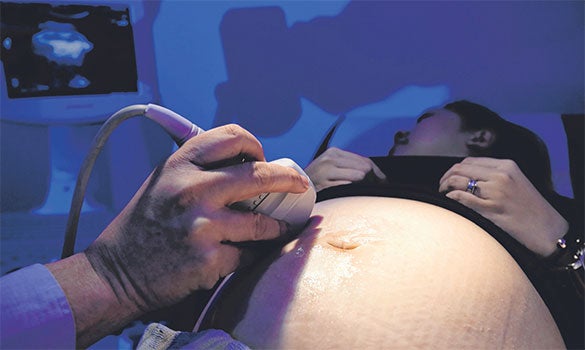
has one of the highest gestational diabetes rates in the world, with one in five births affected by it.
Singapore has one of the highest gestational diabetes rates in the world, with one in five births affected by it.
Two-thirds of women with condition go on to develop diabetes, says KKH consultant
More expectant mothers at KK Women’s and Children’s Hospital (KKH) have been diagnosed with gestational diabetes ever since screening of the disease was made available there for all pregnant women from the start of 2016.
“Our recent data has shown that up to 50 per cent more pregnant women are diagnosed with gestational diabetes,” Professor Tan Kok Hian, the head and senior consultant of KKH’s perinatal audit and epidemiology unit, said last week.
Currently, about 15 to 20 per cent of the pregnant women managed in KKH have gestational diabetes, compared with around 10 per cent before 2016, he said.
Diabetes in pregnancy, also known as gestational diabetes mellitus (GDM), is a condition of abnormal or elevated glucose readings which occur during pregnancy.
Although gestational diabetes resolves itself in most women after their pregnancies, they still have a much higher risk of developing Type 2 diabetes in their lifetime, said Prof Tan.
“The biggest misconception that people have of gestational diabetes is that it is not serious. It is serious. It puts the mother and the child at increased risk of diabetes in the future,” said Dr Ben Ng, an endocrinologist at Mount Elizabeth Novena Hospital.
“I know of some people who had gestational diabetes and were shocked to find out they have diabetes about five to six years later.”
Indeed, two-thirds of women with gestational diabetes go on to develop diabetes later in life, said Prof Tan. He had initiated the universal gestational diabetes screening for all pregnant women at 24 to 28 weeks gestation at KKH as well as the Singapore General Hospital in a six-month pilot that began in January 2016.
The trial was successful and national guidelines were released in January this year recommending that all pregnant women be screened for gestational diabetes.
Previously, only pregnant women with high-risk factors such as a high body mass index (BMI), age 35 or above, or having close relatives with diabetes were screened.
However, a local study had indicated that relying on these factors alone led to the failure to identify more than half of the women with gestational diabetes.
Singapore has one of the highest gestational diabetes rates in the world, with one in five births affected by it. In comparison, the International Diabetes Federation estimates that one in seven births worldwide is affected by the condition.
The reasons for the higher rates are not clear, though studies have shown that Asian women are at greater risk of developing gestational diabetes.
“It is known that Asians tend to be at a higher risk of developing GDM, and at comparatively lower BMI compared with Caucasians,” said Dr Yew Tong Wei, a consultant at the endocrinology division at the National University Hospital.
“The issue of advanced maternal age may also play a role, where the average age of gestation has been increasing.”
Prof Tan said with gestational diabetes, babies are at a higher risk of weighing more than 4kg at birth and may suffer shoulder dystocia, which is an obstructed labour where the shoulders cannot pass through the vagina.
During pregnancy, the mother may develop high blood pressure, go into pre-term labour and may require a caesarean section, he said.
The condition is also associated with increased risk of both mother and foetal deaths, said Prof Tan.
Dr Tan Kai Lit, an obstetrician and gynaecologist at Thomson Women’s Clinic (Toa Payoh), said that the children of women with gestational diabetes are also at increased risk of obesity, glucose intolerance and diabetes in late adolescence and young adulthood.
Women with gestational diabetes should have regular foetal growth monitoring and go for follow-up checks after delivery to ensure their condition has resolved, the various doctors said.














 Get it on Google Play
Get it on Google Play